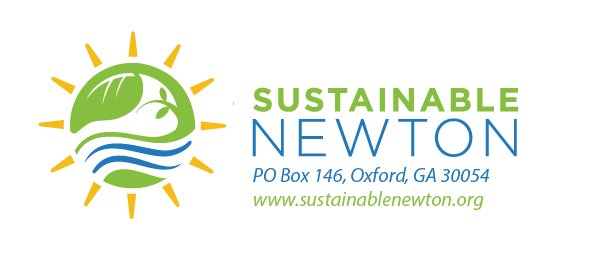|
By the Sustainable Newton Board  On Tuesday, November 7, voters in the cities of Covington and Porterdale will elect new mayors and fill multiple city council seats. Advanced in person absentee voting starts Monday, October 16. To help you make informed choices, we asked candidates in each contested race to respond to five questions about sustainability. We're sharing the answers we received below and noting which candidates did not respond. We encourage you to consider this information before casting your ballot.
0 Comments
By Maurice Carter, Sustainable Newton Marketing & Communications Director
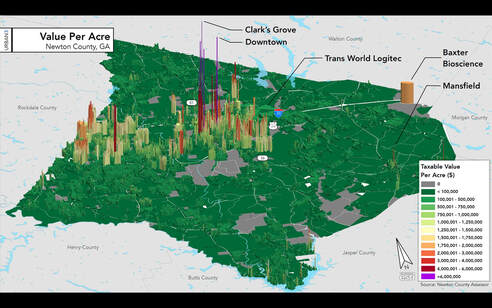 Urban3 mapped where taxable value is created in Newton County Urban3 mapped where taxable value is created in Newton County
The financial model the City of Covington is operating under creates a $8.4M/year shortfall against the long-term maintenance and replacement costs for the city's infrastructure (roads, water and sewer lines, and electric and natural gas lines). And that deficit will grow by that much every year it goes unfunded. Put into practical terms, the city can ultimately only afford 46% of its existing 104 miles of roads inside the city limits. That was the message delivered to elected officials, city staff, and citizens last week by Joe Minicozzi, principle of the consulting firm Urban3.
By Maurice Carter, Sustainable Newton President 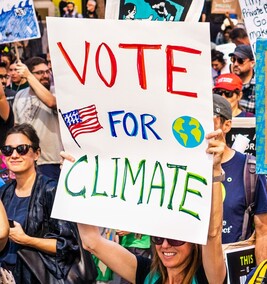 Across Newton County cities, one mayoral and 14 city council terms expire at year end. But only two seats -- Covington's East Ward Post 1 and West Ward Post 2 -- have contested races in November. The other openings will be filled in January by candidates who qualified unopposed. Prior to advanced, in-person voting beginning October 12, Sustainable Newton invited the two Covington East Ward and two West Ward candidates to chat with us about climate change, sustainability, and their positions on issues such as rooftop and utility-scale solar and the adoption of electric vehicles. We offered to send questions a week in advance and record each interview at the candidate's convenience without a live audience. You can read our questions here. East Ward Post 1 incumbent council member Susie Keck and West Ward Post 2 candidate Scotty Scoggins accepted our invitation. You will find recordings of those conversations below. By Maurice Carter, Sustainable Newton President  In regularly scheduled meetings Monday night, the city councils of Covington and Oxford each voted to approve solar power purchase contracts (SPPCs) with the Municipal Electric Association of Georgia (MEAG). Covington will purchase up to 15 megawatts (MW) of solar capacity through MEAG's 80 MW solar initiative scheduled to come online in 2023. Oxford will commit to 4 MW. This initiative marks the first time MEAG has included a utility-scale solar offering in its power portfolio. The association -- which serves 49 municipal electric companies in Georgia -- will contract with a third party vendor to construct and operate an 80 MW solar farm in south Georgia. MEAG will resell the solar-sourced electricity (and associated renewable energy credits) to cities participating in the project. The actual capacity Covington and Oxford receive will depend on the total purchase commitments received from all eligible municipal electric companies. If requests exceed the 80 MW capacity of the project, then each interested city will receive a reduced allocation based on their percentage of the total requested. In presenting the MEAG proposal to City Council Monday night, Covington Electric Director Joel Smith positioned the solar opportunity as an important step for achieving the city's goal of 90% emissions-free electricity by 2045. According to Smith, Covington plans sell the new solar capacity exclusively to large industrial customers via a Renewable Energy Customer Agreement (RECA), giving those large customers the opportunity to meet sustainability objectives and comply with corporate mandates. One existing Covington customer has already expressed interest in purchasing 50% of Covington's solar capacity under the agreement. Oxford plans to add the additional electricity to their grid, serving all customers. Sustainable Newton supporters may recall our MEAG cities (Covington, Oxford, and Mansfield) posed special challenges during our 2019-20 Solarize Newton-Morgan campaign -- due to the standby capacity fee MEAG encouraged those cities to adopt as a hedge against revenue loss from rooftop solar. The Oxford City Council ultimately voted to rescind their standby fee, and Covington voted to reduce (but not eliminate) theirs. In 2019, MEAG had no publicly announced plans for a solar, and you could not even find the word "solar" anywhere on their website. These solar power purchase contracts with MEAG are a very big step forward in just two short years. Sustainable Newton remains committed to working with local officials in each of our cities to remove barriers to rooftop solar and to even provide incentives (such as net metering, time of use rate plans, etc.). But, rooftop solar alone will not reduce greenhouse gas emission sufficiently to address the climate crisis. We've aligned our climate action plans with Drawdown Georgia, and utility-scale solar is a big part of that plan. For the Electricity solution sector, Drawdown Georgia has set the following statewide targets for 2030:
During our solarize campaign, consultants estimated the 85 kW of rooftop solar installed through the campaign would mean 159,460 pounds less carbon being emitted into the atmosphere each year. Extrapolating that formula, 19 MW of utility-scale solar will result in roughly 35.6 million pounds (or 16,202 metric tons) less carbon emissions annually from electricity generation for our two cities. This stuff adds up! We are grateful to MEAG for taking this important initiative and proud of our elected officials and city staffs in Covington and Oxford for stepping up in a big way! May this only be the beginning of even bigger things to come!! By Theodosia Wade, Past Sustainable Newton Board Member 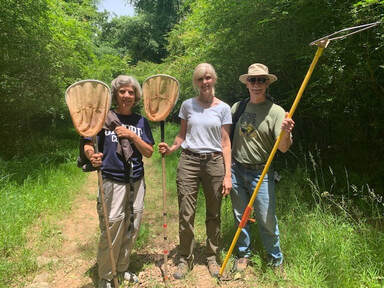 Who Doesn’t Love a Creek? Thanks to the City of Oxford’s Sustainability Committee, I had a chance to play in the creek again with the Stream Team of GA and folks from UGA’s Warnell School of Forestry and Natural Resources. Since retiring, I really miss that part of teaching of Environmental Science at Oxford College, so it was a real treat for me to get my feet wet and my hands slimy. On Saturday, we sampled a stretch of Dried Indian Creek behind the Oxford College Organic Farm to see how many different kinds of fish we could find. Using an electro-shocker, the team collected fish from horny head chub to yellow fin shiners -- even a few salamanders. No worries though, it was all catch and release with 0% fish mortality. What a beautiful array of fish, many in their brilliant breeding colors. By the Sustainable Newton Board of Directors  We added a new word to our vocabulary in 2019 -- more accurately, an acronym. That acronym was "EtO," short for ethylene oxide. This was an unfamiliar term for nearly everyone in Newton County, but news coverage of releases of this known carcinogen from the Becton Dickinson (BD) facility in Covington soon had everyone talking and local governments pressed to act. In October, we commended the Covington Mayor and City Council for their response to the situation. Much has happened since, with BD eventually resuming operations at their Industrial Boulevard facility with new air quality testing in place. However, in late December, BD was again cited by the Georgia Environmental Protection Division (EPD) for not reporting the existence and release of EtO at a warehouse in Covington's Lochridge Business Park.
By Maurice Carter, Sustainable Newton President
As the video shows, consumer product manufacturers have long played a complicit role in causing and exacerbating current woes. It's a perfect example of what Systems Thinking practitioners refer to as a "Shifting the Burden" scenario.
By Theodosia Wade, Sustainable Newton Vice President 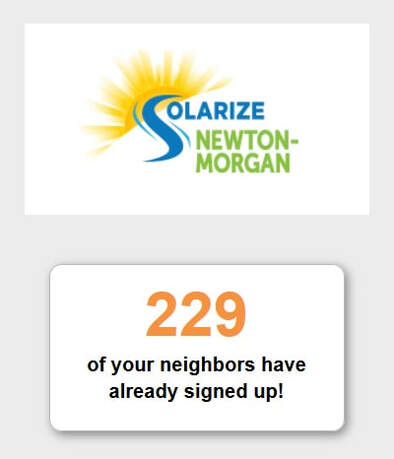 Well, this was going to be a final post to wrap up our Solarize Newton-Morgan campaign and tell you all the wonderful things we accomplished with some great local and statewide partners. More on that further down in this post, but first the really big news: Last week, we reported potential good news in Covington, and now it's official. The Covington City Council voted Monday night to reduce the city’s standby capacity fee for customers with residential solar!!!! This addresses a substantial roadblock discouraging many Covington residents who wanted to install solar during our campaign. So, the Solarize Newton-Morgan Campaign is open again for business in Covington. Residential customers have until the end of November to request a free solar evaluation of their property, with signed contracts due by the end of December. To sign up or to learn more, visit the campaign website. This gives customers who purchase their power through the City of Covington the chance to take advantage of bulk purchasing prices for solar and the federal tax credit for 2020. Thanks so much to Mayor Johnston and the City Council for supporting clean, renewable energy options for our community! Now, about this past year…
By Theodosia Wade, Sustainable Newton Vice President
I am so proud of our community! Monday night’s meeting of the Covington City Council was a great example of how government should work for and with the people. Because Mayor Ronnie Johnston and the city council pursued independent ethylene oxide (EtO) air testing in our community, we could get facts without relying on self-reported data from Becton Dickinson (BD). The test results came back showing EtO levels much higher than that deemed safe by the US Environmental Protection Agency (EPA). So, once again, the mayor and council stepped up and made the difficult decision to ask BD to temporarily cease operations.
By Maurice Carter, Sustainable Newton President 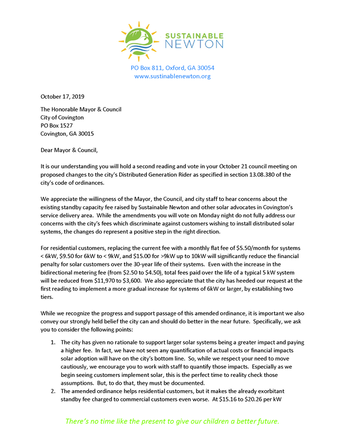 Read our letter to Covington Officials Read our letter to Covington Officials When Sustainable Newton partnered with other organizations to launch the Solarize Newton Morgan campaign in the fall of 2018, we were excited to have so many neighbors request a free, no-risk solar evaluation for their property. By the end of the sign-up period, we had registered 229 property owners interested in considering rooftop or ground-mounted solar. But, as we worked with our partners Solar CrowdSource and Alternative Energy Southeast (AES) to evaluate each property, we quickly realized we had a problem. In areas served by utilities like Georgia Power, Snapping Shoals EMC, and Central Georgia EMC, the business case for distributed solar was clear. Property owners willing to make the upfront investment realized they could save tens of thousands of dollars over the 30-year life of their solar system, usually realizing payback on the investment in eight to ten years. But, homes and businesses served by municipal electric companies in Covington, Mansfield, and Oxford learned they faced substantial fees on customers with a distributed electric generation capability (solar, wind, hydro, etc.). These cities purchase power from the Municipal Electric Association of Georgia (MEAG), and MEAG had encouraged its member cities to implement a "standby capacity fee" for distributed generation (DG). The fee, typically based on the size of the solar system, is designed to collect additional revenue to offset lower power bills presented to solar customers consuming less electricity. Ostensibly meant to allow these utilities to recover fixed costs to maintain the power grid, the true effect of the fee is to stifle solar adoption in these service areas, by totally destroying the business case and return on investment. By the Sustainable Newton Board of Directors  On November 5, 2019, Georgia cities head to the polls to elect new mayors and city council members. Locally, in Newton County, residents of Covington, Mansfield, Newborn, Oxford, and Porterdale have offices up for election, but only Covington, Oxford, and Porterdale have contested races (two or more candidates). As a 501(C)(3) charity, Sustainable Newton doesn't endorse specific candidates for any elected office. However, as an advocacy and education organization, we want candidates and voters to carefully consider sustainability-related issues in their platforms and in their voting. So, for the contested races, we sent questions to candidates and are publishing their answers to the public. The questions we asked are: |
Categories
All
Archives
February 2024
|
Photos from Chemist 4 U, shixart1985 (CC BY 2.0), Juhele_CZ, EarthLED, shixart1985, EcuaVoz, Chemist 4 U

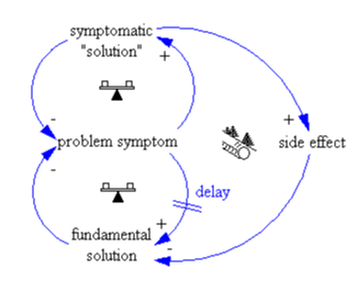
 RSS Feed
RSS Feed
